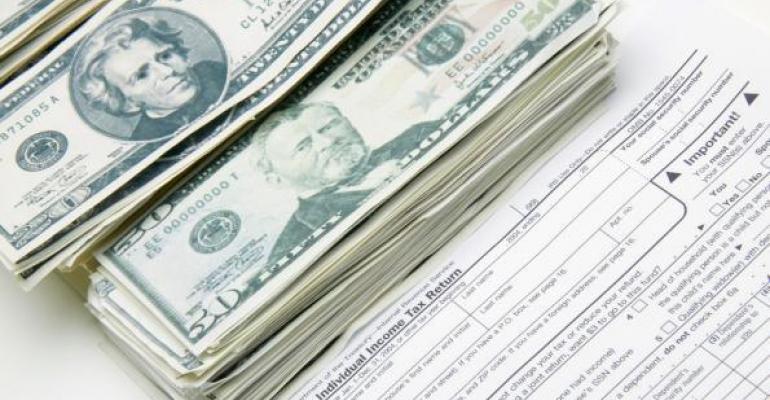NEW YORK, Sept 18 (Reuters) - Investors who own some bank sector funds may be in for an unwanted surprise: a tax bill.
The largest U.S. financials ETF, the $15 billion Financial Select Sector SPDR Fund (XLF), is paying out a large dividend that will be taxable for the fund's investors, according to a company notice distributed to some clients Friday.
The payment brings the fund in line with a new mandate by index firms S&P Dow Jones Indices LLC and MSCI Inc that makes many real-estate investment trusts their own standalone business sector. The REITs were formerly held in financial sector funds, alongside banks, insurers and other related firms.
As a result, financial sector index funds are shedding real-estate assets. The XLF ETF, which owns a real-estate ETF, has said it is now sending its shares of that Real Estate Select Sector SPDR Fund to investors. Fund manager State Street Global Advisors has estimated nearly a fifth of the fund's assets will be paid out in the one-time distribution, scheduled for Thursday.
Some 20 to 30 percent of that payout "is expected to be taxed as ordinary income," State Street said in the notice to clients, a copy of which was seen by Reuters.
Ordinary U.S. income tax rates currently top out at 39.6 percent, higher than the 20 percent maximum "long-term capital gains" rate for many investment profits.
The remaining 70 to 80 percent of the dividend "will be treated as return of capital," and likely not taxed, according to the notice. The figures are an estimate as of Sept. 9 and subject to change, the document said.
State Street did not respond to requests for comment.
ETFs are generally known for offering tax advantages. Unlike mutual funds, they can often swap out securities instead of cash to meet redemptions, sidestepping a taxable transaction in the process.
The full tax hit for index funds from the real-estate sector switch is not yet clear. Some other financials index funds, such as the Vanguard Financials ETF, took a different approach than XLF, selling their real-estate shares without paying a special dividend. (Reporting by Trevor Hunnicutt; Editing by James Dalgleish)






